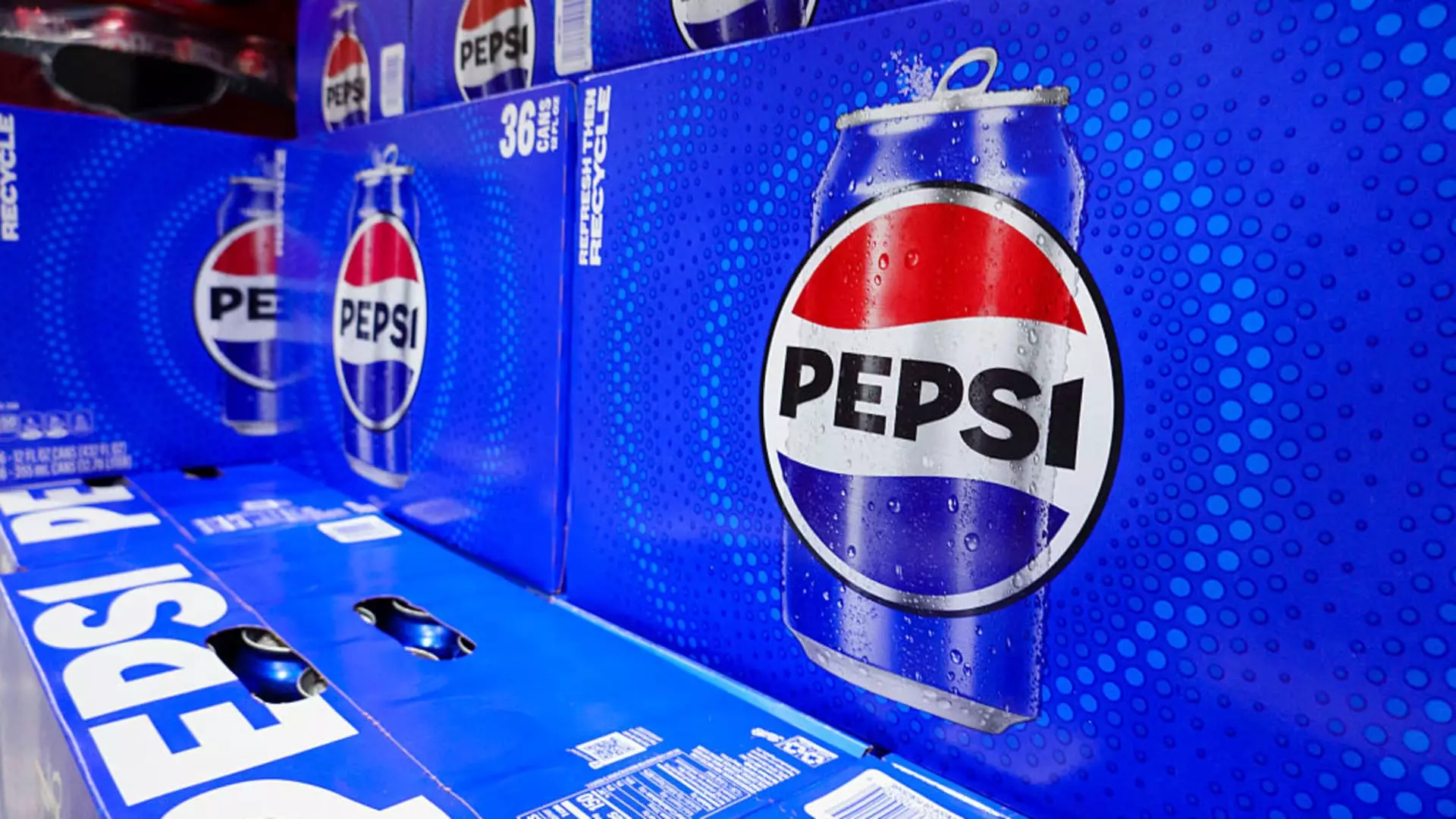PepsiCo’s latest quarterly report appears, on the surface, to be a triumph—beating Wall Street’s expectations with a modest rise in revenue and earnings per share. Yet, beneath this veneer of stability, a stark reality looms: declining demand, shrinking volumes, and strategic uncertainty threaten the company’s long-term viability. The company’s reported net income tumble from over $3 billion last year to roughly $1.26 billion signals turbulent times, casting doubt on whether these superficial gains can withstand the rising headwinds that confront it.
While stock markets responded positively, driven perhaps by superficial beat-and-raise narratives and short-term earnings boosts, this optimism is dangerously myopic. The 1% organic revenue increase and flat product volumes—especially in North America—highlight a sluggish, disengaged consumer base, fatigued by economic pressures and changing preferences. The claimed improvement in the domestic beverage segment, buoyed by double-digit growth in Pepsi Zero Sugar, offers a hint of innovation and agility, but it is unlikely to compensate fully for the broader decline across core categories.
Strategic Shifts: Band-Aids or Long-Term Solutions?
In response to declining core volumes, PepsiCo is attempting to reinvent itself through various tactical initiatives. The company’s emphasis on capitalizing on health trends with protein-packed products and multicultural offerings indicates recognition of shifting consumer values, but it also exposes a fundamental acknowledgment: traditional soda and snack sales are losing their grip on the modern market. Yet, these efforts seem more like patches—short-term remedies—rather than a genuine path toward sustainable growth.
Closing manufacturing plants and streamlining logistics can improve margins, but at what cost? These moves risk alienating the very consumers who seek authenticity and innovation. Moreover, cost-cutting measures may undermine quality and brand perception over time. The company’s vague mention of evaluating marketing spend and reducing internal overlap suggest internal disorder—adequate financially, but lacking strategic clarity. Was this a sign of a resilient pivot, or merely a desperate attempt to keep pace? Given the persistent decline in core volumes, it’s clear that PepsiCo’s existing strategies are insufficient, and its future growth remains uncertain.
The Illusion of Stability in a Shifting Landscape
PepsiCo’s aspirational outlook—expecting only low-single-digit organic growth and stable earnings—may be overly optimistic. The volatile economic environment, with inflation, tariffs, and changing consumer attitudes, suggests that the company’s conservative outlook might be more wishful thinking than a reliable forecast. Their acknowledgment of “cautious consumers” and recent tariff effects hints at deeper economic headwinds that could further erode profitability.
Furthermore, the company’s efforts to rebrand and reposition itself come across as reactive rather than proactive. The recognition that North American demand is weakening is coupled with efforts to transition toward health-conscious products, but altering a brand’s core identity is an arduous task, especially amid consumer skepticism about corporate motives. PepsiCo’s lukewarm performance in its domestic food division and stagnant volumes suggest that its strategic attempts are too little, too late, or simply misaligned with the realities of contemporary consumerism.
A Call for Honest Reflection
PepsiCo’s quarterly report is a reflection of the broader challenges facing legacy consumer brands in an era of rapid change. The company’s attempts to mask decline behind strategic rebranding, cost-cutting, and short-term revenue gains do little to address the root issues: shifting consumer preferences, economic volatility, and an overly corporate approach that risks alienating loyal customers seeking authenticity and innovation.
While the company remains a giant in the global marketplace, its trajectory raises serious questions about the sustainability of its business model. If PepsiCo’s leadership continues to prioritize superficial metrics over genuine consumer insights and strategic innovation, it may find itself increasingly irrelevant in a landscape that demands agility, authenticity, and a forward-looking vision. For now, the company’s superficial resilience should be taken with caution—another reminder that numbers can be deceiving, and true health lies beyond the quarterly reports.

Leave a Reply